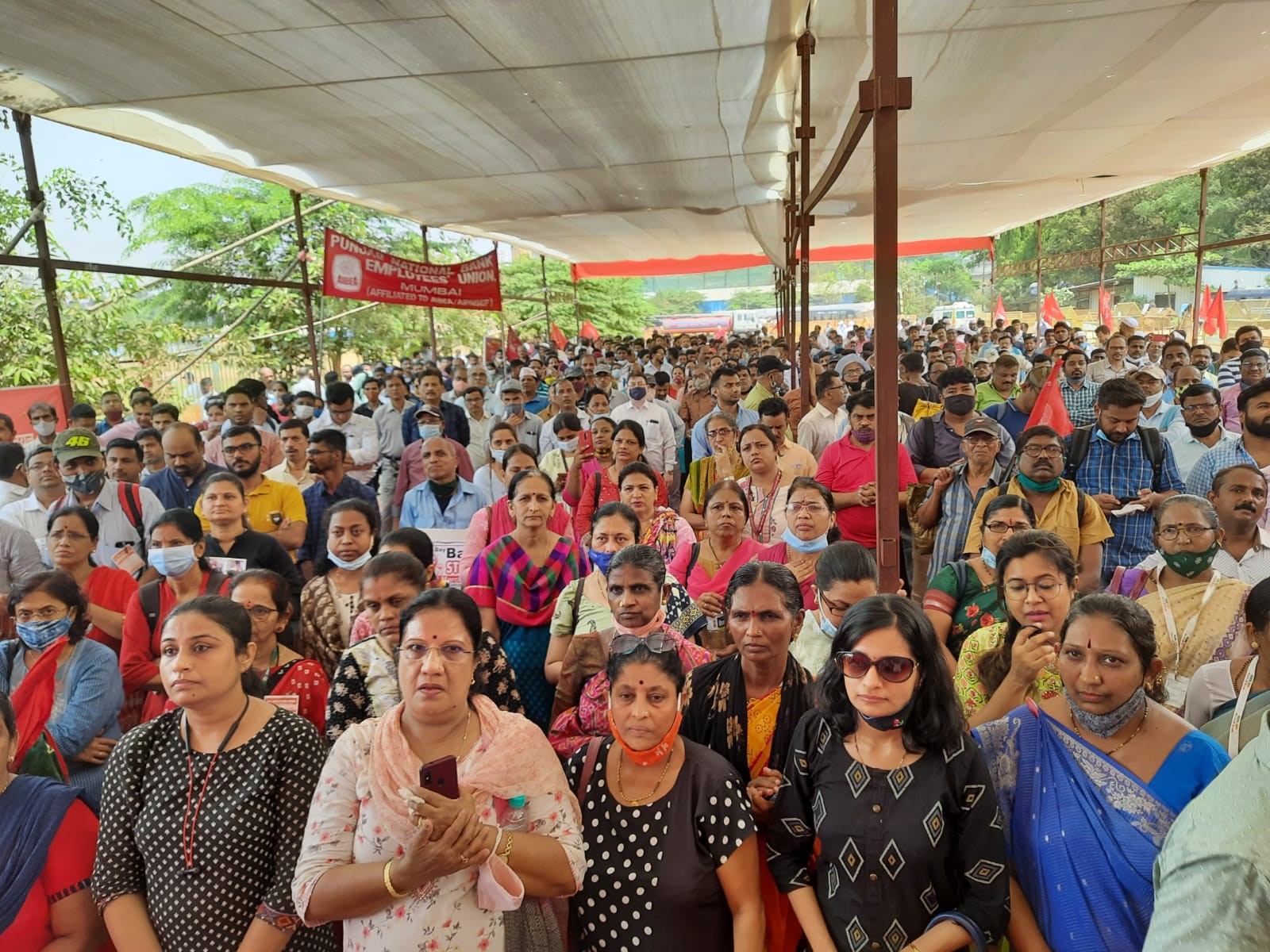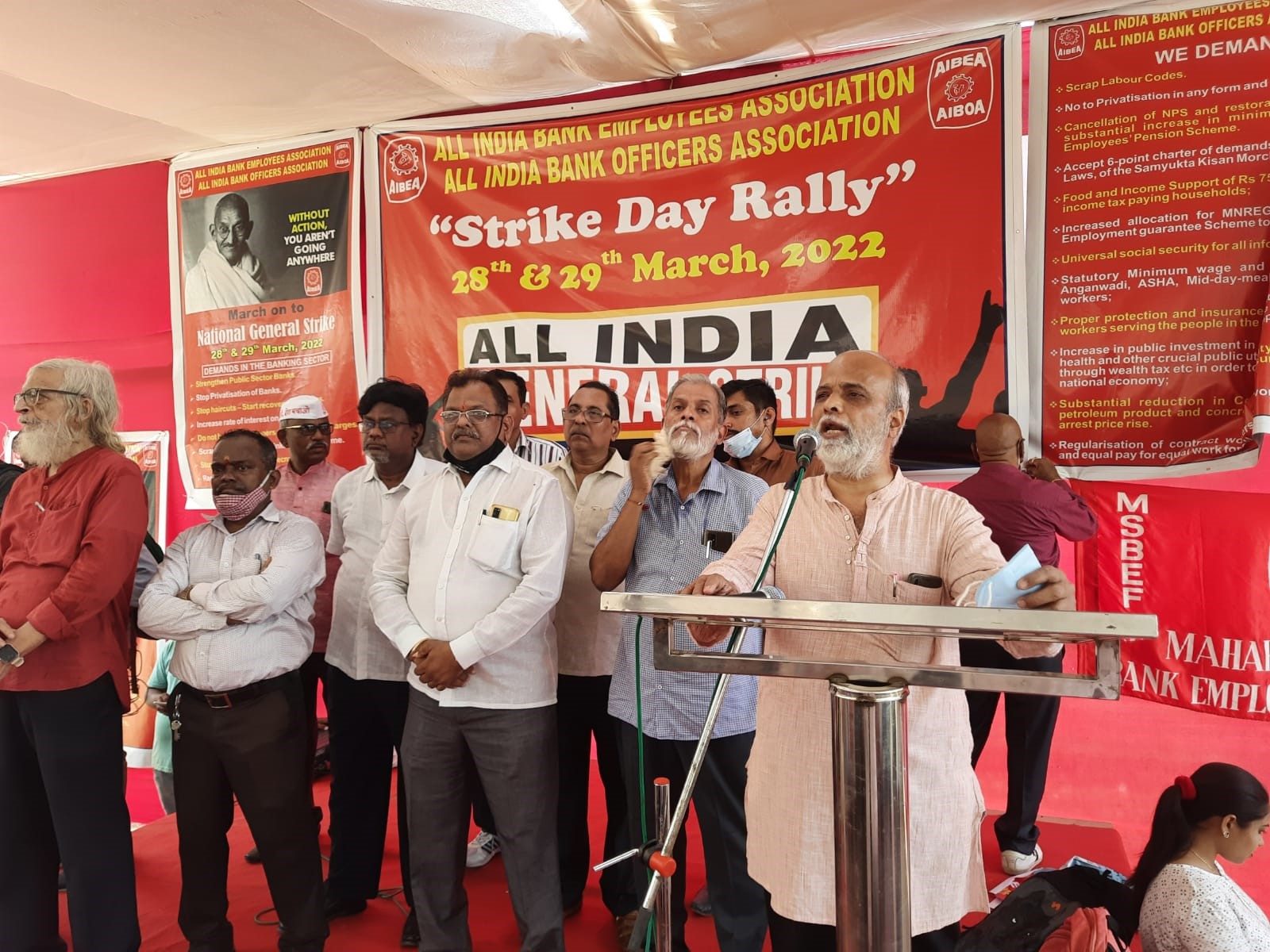NEWS
Strike hits banking services
Trade unions of banks have responded to the government’s privatisation policy with a two-day strike, which crippled banking services and caused cash shortages at ATMs on Monday.
Trade unions of banks have responded to the government’s privatisation policy with a two-day strike, which crippled banking services and caused cash shortages at ATMs on Monday.

Trade unions of banks have responded to the government’s privatisation policy with a two-day strike, which crippled banking services and caused cash shortages at ATMs on Monday.
Most of the public sector banks were impacted except for State Bank of India (SBI) and the Chennai-based Indian Overseas Bank (IOB), where the unions did not participate in the strike.
The nationwide strike was called by various trade unions, including bank staff, to protest against various policies of the government. The joint forum of central trade unions said the strike would continue on Tuesday.
ATMs even in Mumbai, the commercial capital of India, went dry by late afternoon in several places as many banks were unable to replenish the cash stocks. Cheque clearances are also impacted, bankers said.
In places like Mumbai, banks will be working for just two days this week. Banks have annual closing on April 1 and Gudi Padwa, a spring-time festival that marks the traditional new year for Marathi and Konkani Hindus, falls on April 2, followed by a Sunday.
“SBI was not impacted by the strike as our unions were not part of it. Some services in Kerala were impacted but we tried to maintain normal services in all our branches,” Om Prakash Mishra, SBI deputy managing director of human resources, told Indianbankingnews.com.
Banking services were partially impacted in all the 28 states and eight union territories of India. In Kerala, the strike was most successfully carried out.
In Maharashtra, 30,000 employees from 7,000 branches participated in the strike. They were from public sector banks, old private sector banks like Karnataka Bank and Federal Bank, regional rural banks and co-operative banks.
“Banking services were impacted at all locations. In Kerala, it was a total success with the left unions supporting the strike, but the banks have done some token transactions to show that work was not impacted. The two-day backlog and the long weekend will pile up cheques, which may take a fortnight to clear,” said Maharashtra State Bank Employees Federation general secretary Devidas Tuljapurkar.
In Mumbai, the Shiva Sena unions did not participate in the strike. This allowed some banks to carry out skeletal services.

The All India Bank Employees’ Association (AIBEA) demanded the withdrawal of Banking Laws Amendment Bill as it aims at privatisation of public sector banks. The other demands include stringent measures for recovery of big-ticket loans and scrapping of the corporate loan write off policy and the new pension scheme. In order to keep the customers on their side, the union body also wanted the rate of interest on bank deposits to increase and service charges for customers to decrease.
“The impact of the strike is prominent in eastern part as many branches of public sector banks there are shut. In all other regions, branches were open as a token but no major transaction took place. Many employees participated in the strike,” said AIBEA general secretary CH Venkatachallam.
The joint forum of central trade unions, which called for the 48-hour Bharat Bandh, is protesting against the four labour codes, privatisation of any form and the national monetisation pipeline. Food and income support of Rs 7,500 per month to the non-income tax-paying households, extension of the employment guarantee scheme and regularisation of contract workers are also part of their demands.
